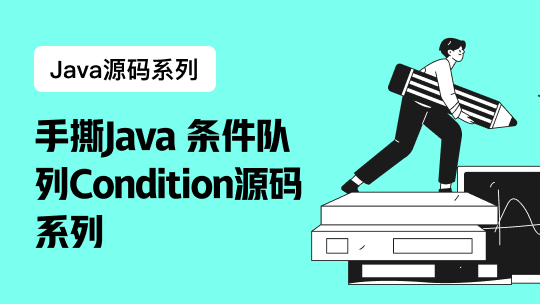场景
首先我这里是一台长方形的设备,虽然玩了这么久我不知道这个玩意叫啥,但是没关系它里面是装的android系统,然后这台设备需要链接一个称重的设备进行串口调试,意思很明显,长方形设备需要获取到称重设备的重量信息,从而来进行相应的处理。
我这台设备可以直链接串口也可以转usb链接,其实原本就是直链接串口的线,只是我直插串口链接不到,后来再接了个usb插上去,然后......好了。
所以这里提醒一下广大的朋友,如有类似情况可以转个usb试试。
搜索设备方法,listItems是一个集合,listitem是封装的一个bean类
/**
* 搜索设备
*/
fun searchEquipment() {
val usbManager = activity.getSystemService(Context.USB_SERVICE) as UsbManager
val usbDefaultProber: UsbSerialProber = UsbSerialProber.getDefaultProber()
val usbCustomProber: UsbSerialProber? = CustomProber.getCustomProber()
for (device in usbManager.deviceList.values) {
var driver = usbDefaultProber.probeDevice(device)
if (driver == null) {
driver = usbCustomProber!!.probeDevice(device)
}
if (driver != null) {
for (port in driver.getPorts().indices) {
listItems.add(
ListItem(
device,
port,
driver
)
)
}
} else {
listItems.add(
ListItem(
device,
0,
null
)
)
}
}
} 下面直接给我的工具类,依赖usb-serial-forandroid 每次调用工具类之前必须先调用initUSB方法
/**
* 操作USB类封装
*/
class OperationUSB : OpernationUSBimpl {
private var activity: Activity? = null
private var Datas: ByteArray? = null //接收到数据集
private var Index = 0 //循环下标
private var type = 0 //0等于非称重操作 1表示称重操作
private val ArrayLenth: Int = 100 //默认数组长度
private var deviceId: Int? = null
private var portNum: Int? = null
private var baudRate: Int? = null
private var usbIoManager: SerialInputOutputManager? = null
private var usbSerialPort: UsbSerialPort? = null
private var connected = false
private var Times: ArrayList<Timebean> = ArrayList<Timebean>()
private var callback: OperationUSBCallBack? = null
fun setOperationUSBCallBack(callback: OperationUSBCallBack) {
this.callback = callback
}
companion object {
val operationusb: OperationUSB? = OperationUSB()
val 获取重量: String = "*********"
val 置零: String = "*********"
var isstable: Boolean = false //抛出外部访问变量是否稳定 默认不稳定
var nowWeight: Int = 0 //抛出外部访问变量当前重量 默认为0
}
override fun send(instruction: String, type: Int) {
this.type = type
if (!connected) {
Toast.makeText(activity, "not connected", Toast.LENGTH_SHORT).show()
return
}
reset()
USBUtil.send(instruction, usbSerialPort)
}
override fun initUSB(activity: Activity, deviceId: Int, portNum: Int, baudRate: Int) {
this.activity = activity
this.deviceId = deviceId
this.portNum = portNum
this.baudRate = baudRate
}
override fun connect() {
var device: UsbDevice? = null
val usbManager = activity!!.getSystemService(Context.USB_SERVICE) as UsbManager
for (v in usbManager.deviceList.values) {
if (v.deviceId == deviceId) {
device = v
}
}
var driver = UsbSerialProber.getDefaultProber().probeDevice(device)
if (driver == null) {
driver = CustomProber.getCustomProber()!!.probeDevice(device)
}
if (driver.ports.size < this!!.portNum!!) {
this.callback?.OperationInfo("connection failed: not enough ports at device")
return
}
usbSerialPort = driver.ports[this!!.portNum!!]
val usbConnection = usbManager.openDevice(driver.device)
if (usbConnection == null) {
if (!usbManager.hasPermission(driver.getDevice())) {
val intent = PendingIntent.getBroadcast(
activity,
0,
Intent(BuildConfig.APPLICATION_ID + ".GRANT_USB"),
0
)
usbManager.requestPermission(driver.getDevice(), intent)
this.callback?.OperationInfo("connection failed: permission denied")
} else {
this.callback?.OperationInfo("connection failed: open failed")
}
return
}
try {
usbSerialPort!!.open(usbConnection)
usbSerialPort!!.setParameters(
baudRate!!,
UsbSerialPort.DATABITS_8,
UsbSerialPort.STOPBITS_1,
UsbSerialPort.PARITY_EVEN
)
usbIoManager = SerialInputOutputManager(usbSerialPort,
object : SerialInputOutputManager.Listener {
override fun onRunError(e: Exception?) {
this@OperationUSB.callback?.OperationInfo("onRunError:"+e!!.message)
}
override fun onNewData(data: ByteArray?) {
activity!!.runOnUiThread(Runnable {
run {
if (data != null) {
read(data)
}
}
})
}
}
)
Executors.newSingleThreadExecutor().submit(usbIoManager)
this.callback?.OperationInfo("connected")
connected = true
} catch (e: Exception) {
this.callback?.OperationInfo("connection failed: " + e.message)
disconnect()
}
}
override fun disconnect() {
connected = false
if (usbIoManager != null) usbIoManager!!.stop()
usbIoManager = null
try {
usbSerialPort!!.close()
} catch (ignored: IOException) {
}
usbSerialPort = null
}
override fun read(data: ByteArray) {
for (i in data.indices) {
Datas?.set(Index, data[i])
Index++
}
if (type == 1 && Index == 7) {
nowWeight = USBUtil.BtArrToInt(Datas!!.get(3), Datas!!.get(4))
if (nowWeight > 30000) {
//置零
send(置零,0)
this.callback?.OperationInfo("启动置零操作")
return
}
if (Datas!!.get(1).toInt() == 0x03) {
val temps: MutableList<Byte> =
ArrayList()
for (i in Datas!!.indices) {
temps.add(Datas!!.get(i))
}
val a: Any = checkState(Timebean(nowWeight, System.currentTimeMillis()), Times)
if (a is Int && a == -1) {
this.callback?.OperationInfo("Times数据集长度异常:" + Times)
Times.clear()
} else if (a is Boolean) {
isstable = a
}
this.callback?.OperationRead(nowWeight)
}
}
}
/**
* 复位
*/
fun reset() {
Datas = ByteArray(ArrayLenth)
Index = 0
}
}然后发送的模块我用java写的,就一个方法,这里面还有一个计算重量的方法,这是我拿到返回的数据以后进行的计算,具体你怎么计算的问问厂家。
public class USBUtil {
public static void send(String hexstring, UsbSerialPort usbSerialPort) {
try {
byte[] data = new byte[hexstring.length()/2];
int j=0;
for(int i=0;i<data.length;i++) {
byte high = (byte) (Character.digit(hexstring.charAt(j), 16) & 0xff);
byte low = (byte) (Character.digit(hexstring.charAt(j + 1), 16) & 0xff);
data[i] = (byte) (high << 4 | low);
j+=2;
}
usbSerialPort.write(data, 2000);
} catch (Exception e) {
e.printStackTrace();
}
}
/**
* 计算重量结果
*/
private static int byteArrayToInt(byte[] bytes) {
~~~~~
return value;
}
public static int BtArrToInt(byte b1, byte b2) {
~~~~~
return s;
}
}综上链接的一些方法都在上面,注意链接的时候需要注意 校验位 端口号信息,具体这个数据是多少你也要问问厂商的哦。
如果你还有什么问题需要帮助,可以发邮件给我哦。634448817@qq.com














